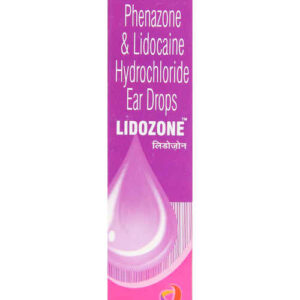LIDOCAINE (LIGNOCAINE OR XYLOCAINE)
LIDOCAINE (LIGNOCAINE OR XYLOCAINE): Lidocaine, also known as lignocaine or xylocaine, is a medication classified as a local anesthetic. It is commonly used to relieve pain and discomfort during medical procedures, such as dental work or minor surgeries. Lidocaine works by blocking the transmission of pain signals from the nerves to the brain.
When applied topically or injected locally, lidocaine numbs the area where it is administered, providing temporary pain relief. It works by inhibiting the voltage-gated sodium channels in the nerve cell membranes, preventing the influx of sodium ions and consequently blocking the initiation and conduction of nerve impulses.
The dose of lidocaine depends on the specific formulation and route of administration. For topical use, such as creams or gels, the recommended dose varies and is typically applied as a thin layer to cover the affected area. For local injections, the dosage depends on the procedure and the individual patient, and it is typically determined by a healthcare professional.
While lidocaine is generally well-tolerated, it may have some side effects. Common side effects include temporary numbness or tingling at the application site, skin redness or rash, and localized irritation. In some cases, individuals may experience allergic reactions, which can present as itching, hives, swelling, or difficulty breathing. Rarely, lidocaine toxicity can occur if the drug is administered in high doses or if the individual is sensitive to its effects, resulting in symptoms such as dizziness, blurred vision, confusion, seizures, or decreased heart rate.
It is important to note that lidocaine should not be used in individuals with a known allergy to the drug or its components. Additionally, caution should be exercised when using lidocaine in individuals with certain medical conditions, such as heart rhythm disorders or liver problems. Lidocaine may also interact with other medications, so it is important to inform your healthcare provider about any other drugs you may be taking.
Overall, lidocaine is a commonly used local anesthetic that provides temporary pain relief during medical procedures. However, it should always be used under the guidance of a healthcare professional and in the appropriate dosage to minimize the risk of adverse effects.

